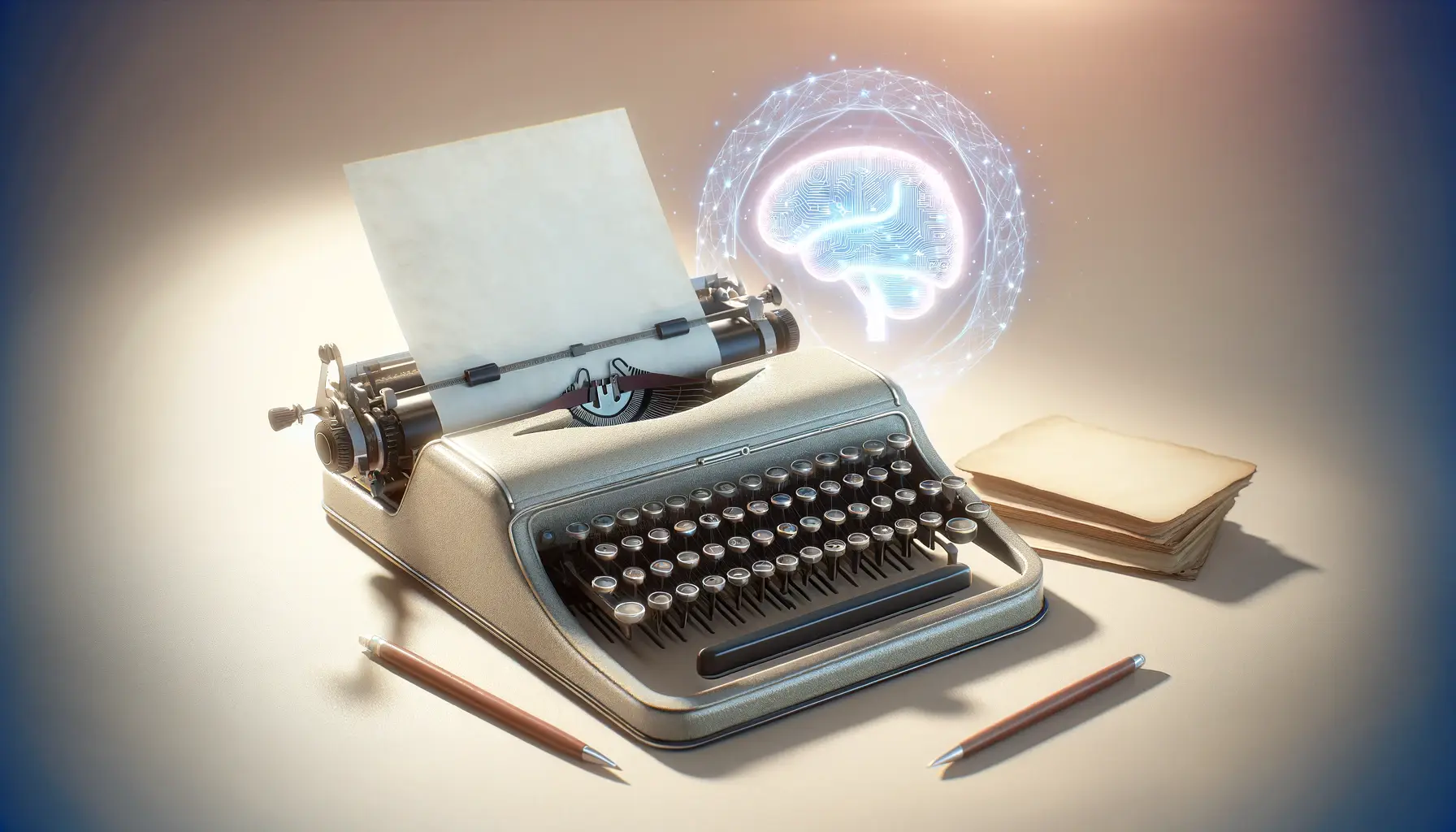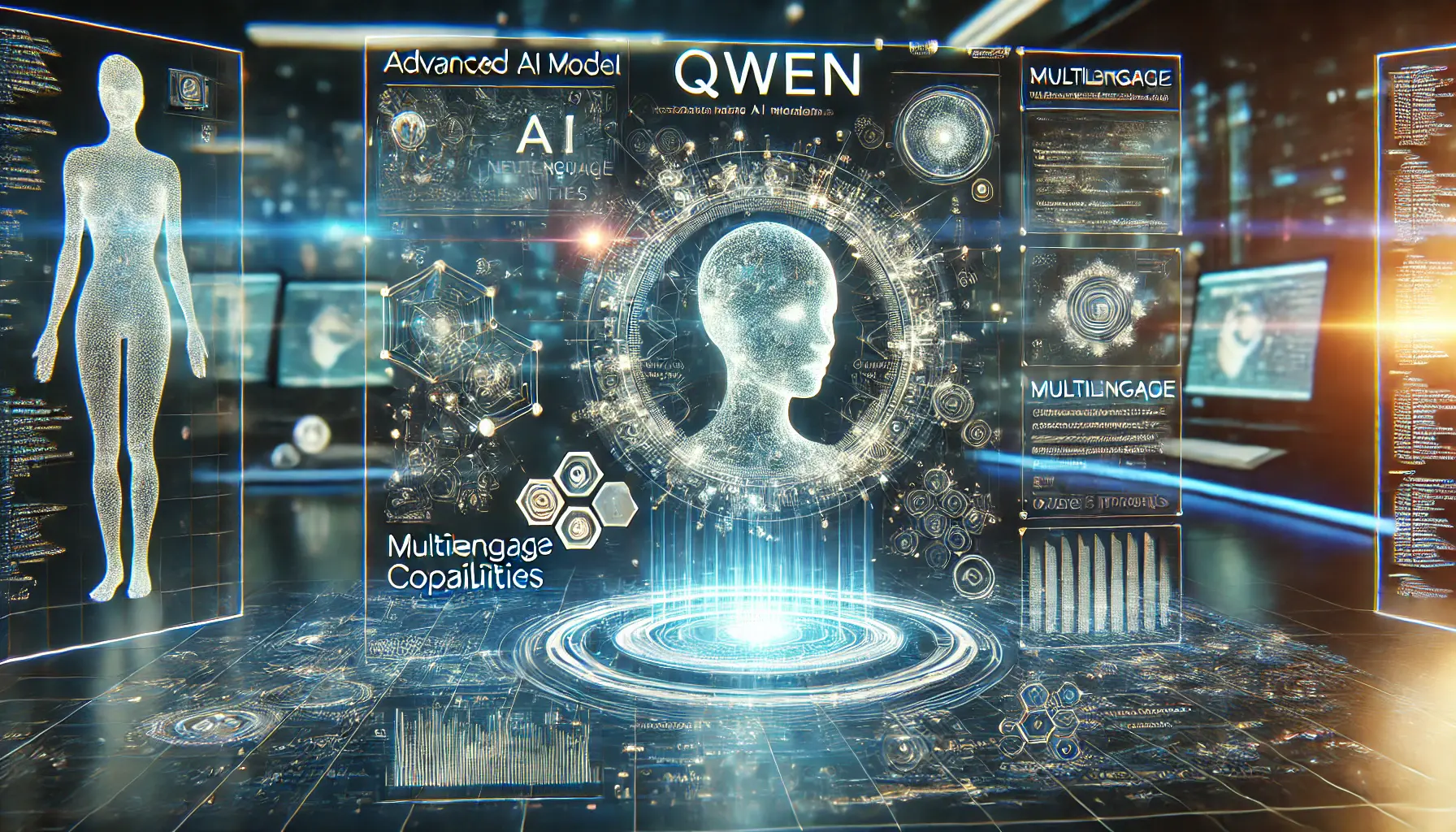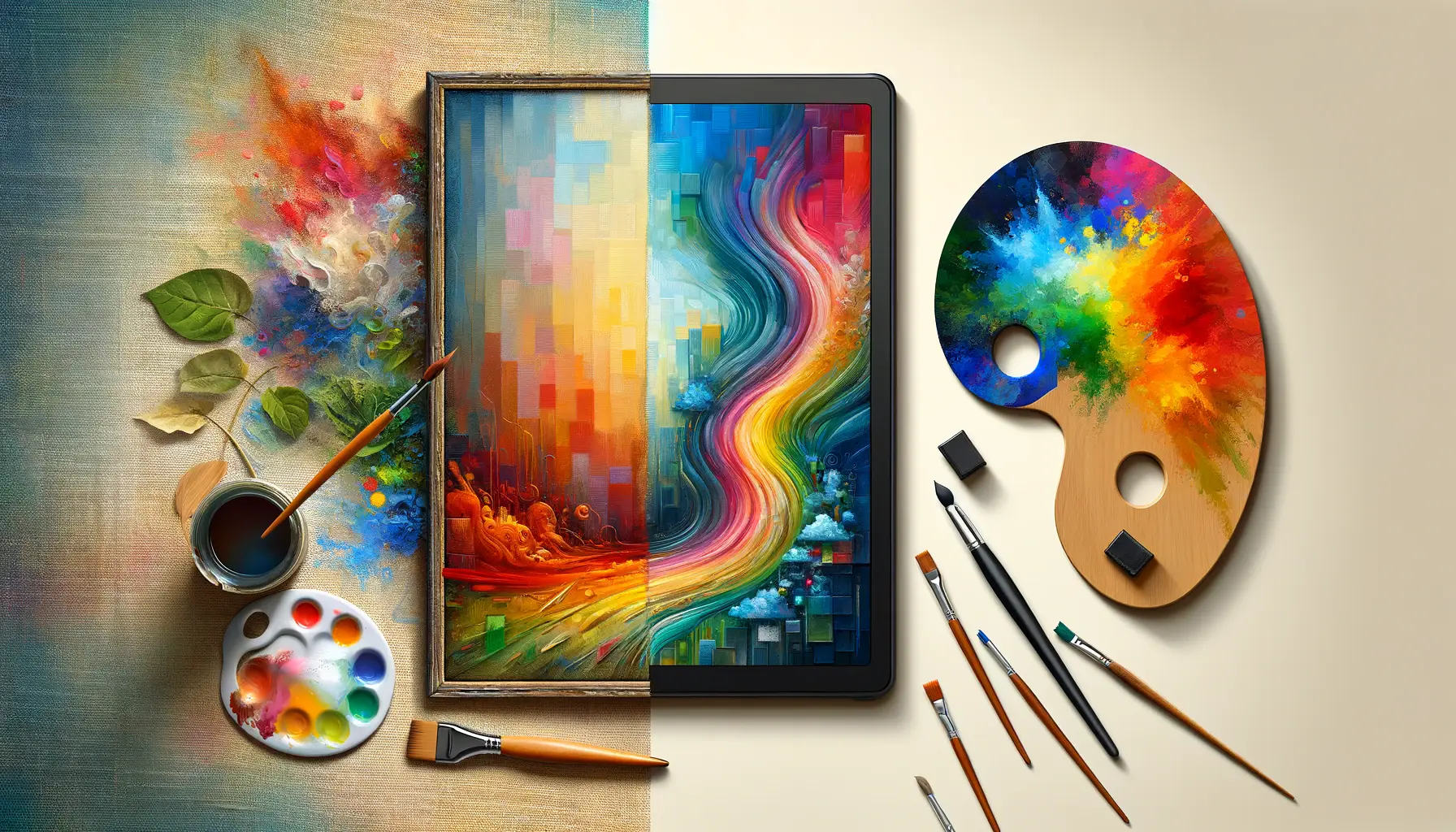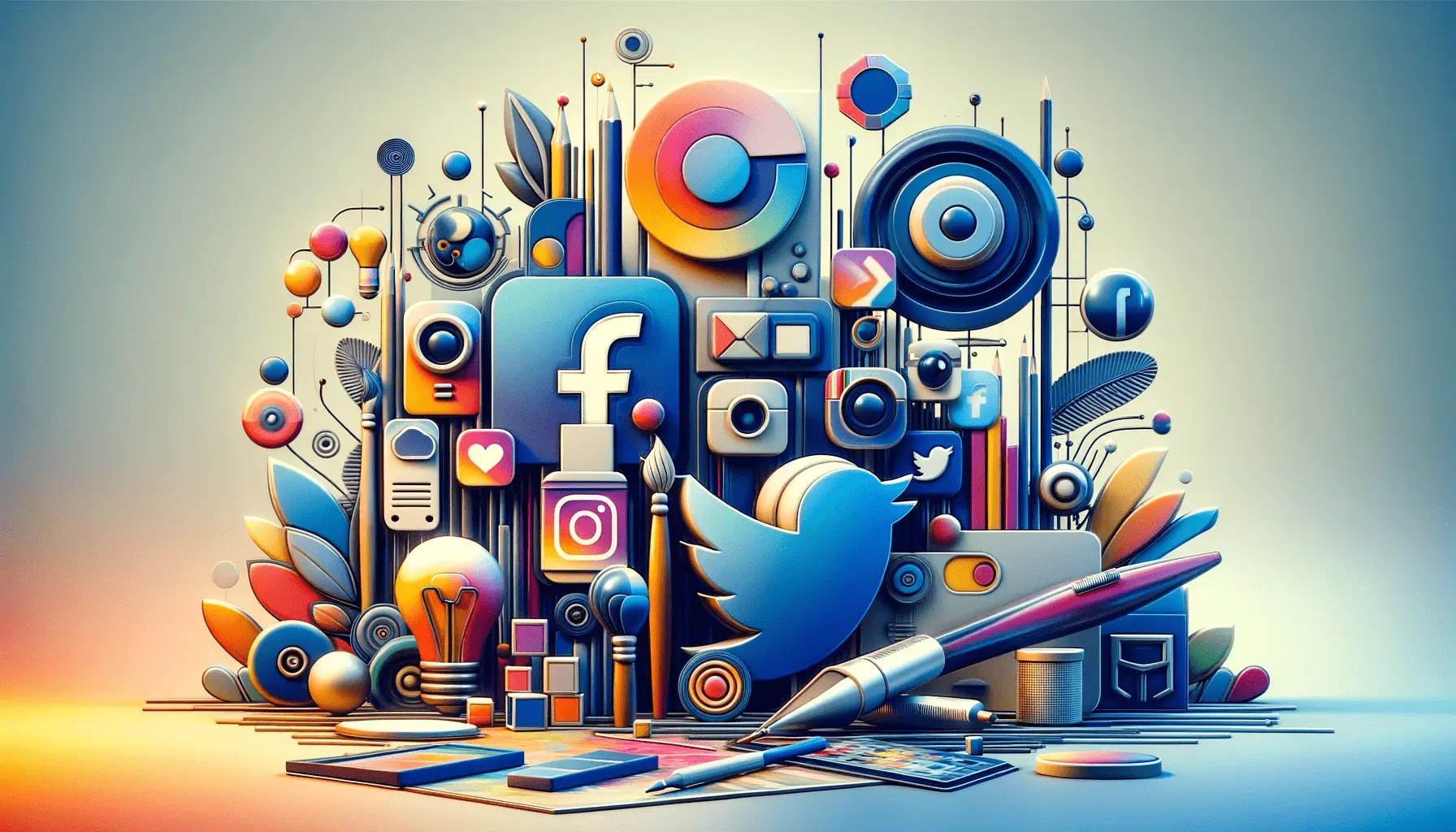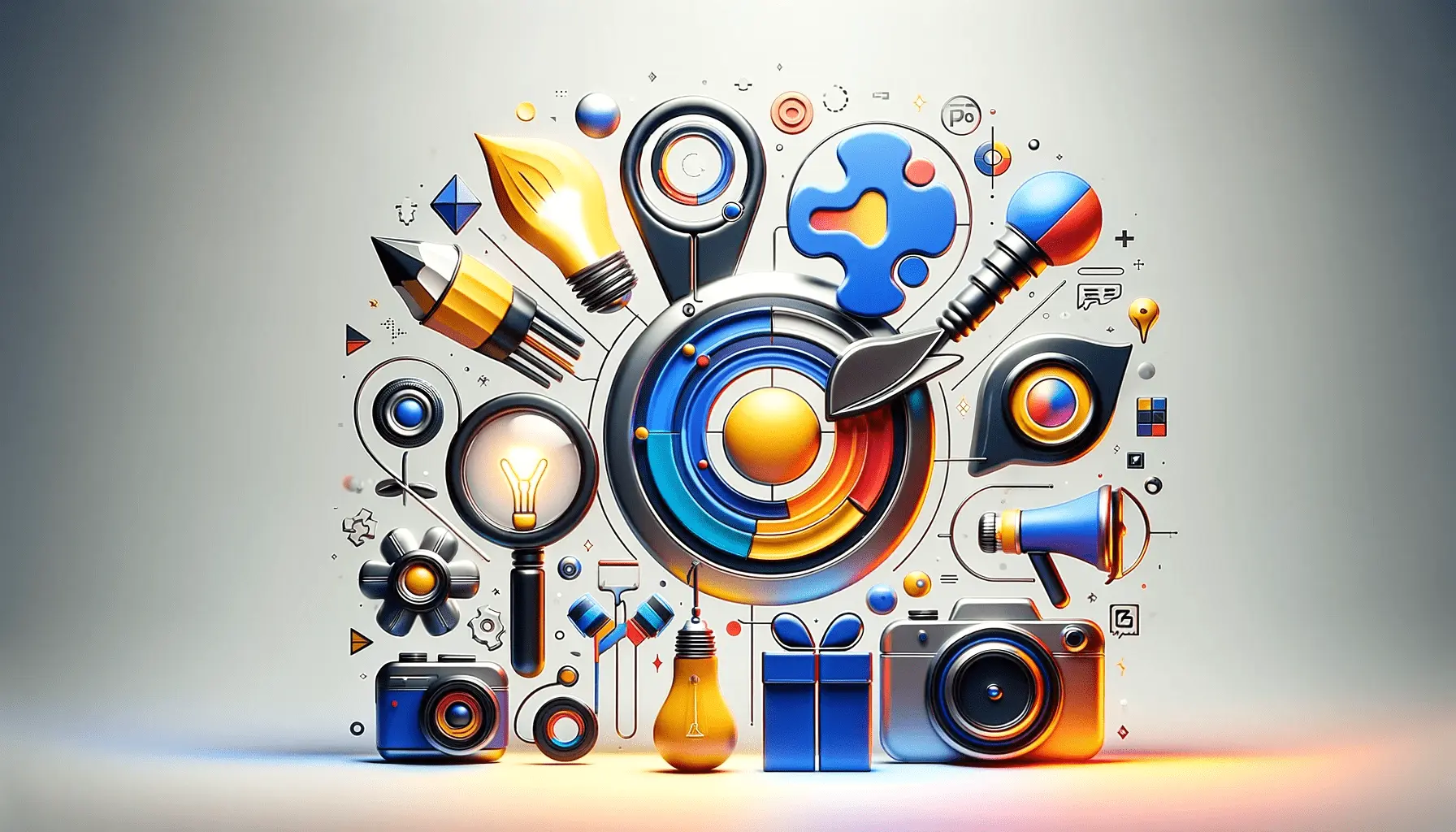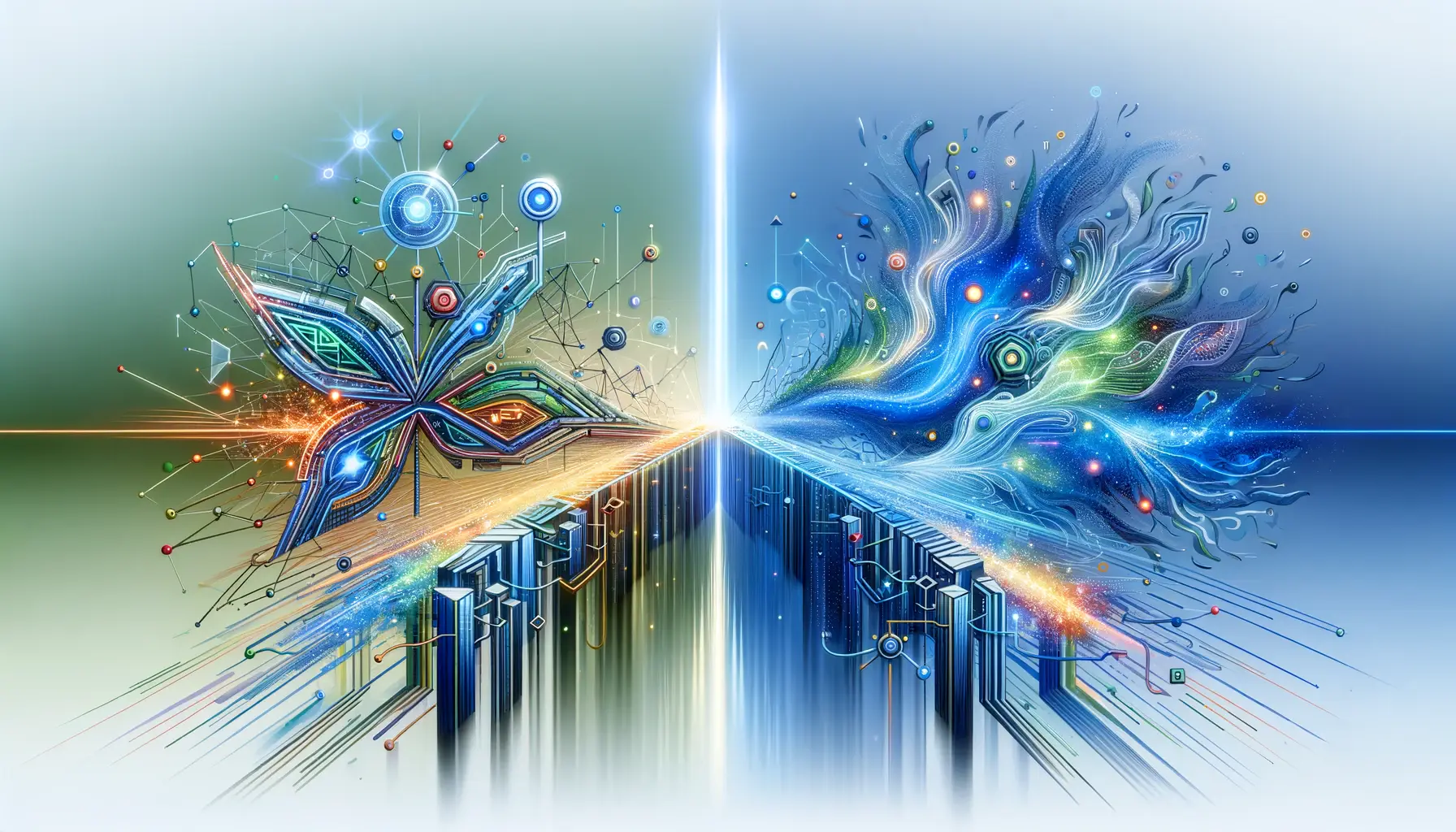The advent of ChatGPT 4 has marked a significant milestone in the realm of digital creativity, particularly for writers.
This advanced iteration of the Generative Pre-trained Transformer developed by OpenAI has not only revolutionized the way we approach writing but has also opened up new avenues for enhancing creativity.
Writers, ranging from novelists to content creators, are finding ChatGPT 4 to be an invaluable tool in their creative arsenal.
At its core, ChatGPT 4 is designed to understand and generate human-like text based on the input it receives.
This capability has profound implications for writers, offering them a unique blend of inspiration, efficiency, and assistance.
The technology’s ability to generate ideas, suggest narrative developments, and even refine prose has made it a go-to resource for anyone looking to elevate their writing.
- Unlocking Creative Potential with ChatGPT 4
- Expanding the Horizons of Genre-Specific Writing
- Enhancing Narrative Depth with Emotional Intelligence
- Streamlining the Writing Process
- Collaborative Writing and Feedback
- Adapting to New Forms of Storytelling
- Future of Writing with AI
- Embracing the Future of Writing with ChatGPT 4
- ChatGPT 4 for Writers: Enhancing Creativity FAQs
Unlocking Creative Potential with ChatGPT 4
The integration of ChatGPT 4 into the writing process can significantly unlock a writer’s creative potential.
By providing instant feedback and suggestions, it acts as a collaborative partner that can inspire new ideas and perspectives.
Writers can leverage this technology to overcome common obstacles such as writer’s block, enabling a smoother and more creative writing journey.
Moreover, ChatGPT 4’s versatility in handling various writing styles and genres makes it an adaptable tool for a wide range of writing projects.
Whether it’s crafting compelling narratives, developing characters, or even experimenting with different writing styles, ChatGPT 4 offers a level of support that can transform the writing process.
Overcoming Writer’s Block
One of the most significant challenges writers face is writer’s block, a daunting barrier where ideas cease to flow.
ChatGPT 4 offers a solution by generating prompts and ideas that can kickstart the creative process.
This not only helps in overcoming the block but also in discovering new directions for their work.
By inputting a basic premise or theme, writers can receive a variety of suggestions that can serve as a foundation for their stories.
This process encourages exploration and experimentation, leading to richer and more diverse narratives.
Refining and Polishing Drafts
Another area where ChatGPT 4 excels is in the refinement and polishing of drafts.
The AI’s ability to suggest improvements in grammar, syntax, and style can significantly enhance the quality of writing.
This editorial assistance ensures that the final product is not only creatively fulfilling but also professionally polished.
Writers can interact with ChatGPT 4 in real-time, making iterative improvements to their work.
This collaborative editing process can lead to a more refined and compelling narrative, elevating the overall quality of the writing.
ChatGPT 4 is transforming the writing landscape by offering writers a powerful tool to enhance their creativity, overcome challenges, and refine their work to professional standards.
Expanding the Horizons of Genre-Specific Writing
ChatGPT 4’s advanced algorithms and extensive training data encompass a wide array of genres, making it an ideal companion for genre-specific writing.
From the intricate plots of mystery novels to the imaginative worlds of science fiction and fantasy, ChatGPT 4 can provide tailored suggestions that resonate with the conventions and expectations of each genre.
This adaptability not only aids writers in maintaining genre fidelity but also encourages them to push the boundaries and innovate within their chosen categories.
Here’s how ChatGPT 4 is making a mark across various writing genres:
Science Fiction and Fantasy
- World-Building: ChatGPT 4 can generate detailed descriptions of fantastical worlds, complete with their own sets of rules, societies, and environments, offering a solid foundation for storytelling.
- Character Development: It provides insights into creating complex characters who inhabit these worlds, suggesting unique traits, backgrounds, and motivations that drive the narrative forward.
Mystery and Thriller
- Plot Twists: ChatGPT 4 excels in concocting unexpected plot twists, keeping readers on the edge of their seats and deeply engaged with the story.
- Clues and Red Herrings: It aids in the strategic placement of clues and red herrings, essential elements in crafting a compelling mystery or thriller.
Romance
- Emotional Depth: ChatGPT 4 can suggest ways to deepen the emotional connection between characters, enhancing the romantic tension and payoff for the reader.
- Character Dynamics: It offers ideas on developing the dynamics between romantic interests, ensuring their interactions are believable and impactful.
Non-Fiction and Educational Content
- Information Structuring: For non-fiction writers, ChatGPT 4 assists in organizing complex information into a coherent and accessible format for readers.
- Fact-Checking: While ChatGPT 4 should not be the sole source for fact-checking, it can suggest areas that may require further research or verification, ensuring the accuracy of educational content.
By leveraging ChatGPT 4’s capabilities, writers can enhance their genre-specific writing, ensuring their work is both authentic to the genre and innovative, pushing the boundaries of traditional storytelling.
Enhancing Narrative Depth with Emotional Intelligence
ChatGPT 4’s understanding of human emotions and interactions adds a layer of emotional intelligence to the writing process that is unparalleled.
This AI’s ability to analyze and generate text that resonates on an emotional level can significantly enhance the depth of narratives, making stories more relatable and impactful for readers.
Here’s how ChatGPT 4 contributes to deepening narrative depth through emotional intelligence:
Creating Emotionally Complex Characters
Characters are the heart of any story, and their emotional complexity is what often makes them memorable.
ChatGPT 4 can suggest character traits, backstories, and motivations that are rich in emotional depth.
This guidance helps writers craft characters who are not only complex but also undergo significant emotional development throughout the narrative.
Moreover, ChatGPT 4 can provide insights into how characters might react emotionally to various situations, ensuring that their responses are nuanced and believable.
This attention to emotional detail makes characters more relatable to readers, fostering a deeper connection to the story.
Infusing Scenes with Emotional Resonance
ChatGPT 4 can also assist writers in enhancing the emotional resonance of specific scenes.
By suggesting descriptive language, dialogue, and actions that convey the intended emotions, ChatGPT 4 helps ensure that each scene achieves its emotional potential.
Whether it’s a heart-wrenching goodbye, a tense confrontation, or a joyful reunion, ChatGPT 4 can guide writers in choosing the right words to evoke the desired emotional response from readers.
Exploring Themes with Emotional Depth
Themes are the underlying messages or morals of a story, and exploring them with emotional depth can make a narrative more compelling.
ChatGPT 4 can help writers identify and develop themes that resonate on an emotional level, suggesting ways to weave these themes throughout the narrative.
This can involve highlighting the emotional stakes involved in the story’s conflicts or suggesting scenarios that test the characters’ beliefs and values.
Incorporating ChatGPT 4’s emotional intelligence into the writing process not only enhances the emotional depth of narratives but also makes stories more engaging and meaningful for readers.
Streamlining the Writing Process
ChatGPT 4’s capabilities extend beyond just creative inspiration and emotional depth; they also offer practical solutions to streamline the writing process.
This AI tool can significantly reduce the time and effort involved in various stages of writing, from research to drafting and editing.
Here’s how writers can leverage ChatGPT 4 to make their writing process more efficient:
Automating Research
Research is a critical component of writing, especially for non-fiction and historical fiction genres.
ChatGPT 4 can automate this time-consuming process by:
- Quickly gathering preliminary information on a wide range of topics.
- Providing summaries of complex subjects to enhance understanding.
While ChatGPT 4 should not replace in-depth research or fact-checking, it can serve as a starting point, guiding writers to the right questions and sources.
Generating Drafts
Starting with a blank page can be daunting.
ChatGPT 4 eases this challenge by:
- Offering suggestions for opening lines or paragraphs based on a brief prompt.
- Generating outlines or entire sections of content, which writers can then refine and personalize.
This initial assistance can help overcome writer’s block and kickstart the writing process.
Editing and Proofreading
Editing is where the bulk of the writing work often lies.
ChatGPT 4 can simplify this stage by:
- Identifying grammatical errors and suggesting corrections.
- Recommending stylistic improvements to make the text more engaging.
- Highlighting areas where clarity can be enhanced, ensuring the message is effectively communicated.
These automated suggestions can significantly reduce the time writers spend on editing, allowing them to focus more on the creative aspects of their work.
Feedback and Iteration
Receiving feedback is crucial for improving writing.
ChatGPT 4 facilitates this by:
- Providing immediate, unbiased feedback on written content.
- Allowing writers to experiment with different versions of their work, offering suggestions for alternative phrasings or structures.
This iterative process, supported by AI, can lead to more polished and compelling final drafts.
By integrating ChatGPT 4 into the writing process, writers can not only enhance their creativity and emotional depth but also achieve greater efficiency, making the journey from concept to completion smoother and more enjoyable.
Collaborative Writing and Feedback
The collaborative potential of ChatGPT 4 extends into the realms of writing partnerships and feedback mechanisms.
This AI tool is not just a solitary assistant but also a facilitator of collaboration, offering new ways for writers to interact with each other and their audiences.
Here’s how ChatGPT 4 is reshaping the collaborative landscape:
Enhancing Writing Partnerships
Collaboration between writers can lead to richer, more diverse narratives.
ChatGPT 4 supports these partnerships by:
- Acting as a mediator to suggest compromises when opinions diverge, ensuring a cohesive narrative direction.
- Generating ideas that blend the strengths and styles of each writer, fostering a harmonious collaboration.
These contributions can enhance the synergy between writing partners, leading to more innovative and engaging works.
Facilitating Audience Engagement
Engaging with readers is crucial for writers, especially in the digital age.
ChatGPT 4 can facilitate this engagement by:
- Helping writers understand and respond to audience feedback, tailoring content to reader preferences and insights.
- Generating interactive content that encourages reader participation, such as quizzes, polls, or choose-your-own-adventure stories.
This interactive approach can deepen the connection between writers and their audiences, creating a more engaged and loyal readership.
Streamlining Peer Review Processes
Peer review is a cornerstone of the writing process, offering critical insights that can significantly improve a work’s quality.
ChatGPT 4 streamlines this process by:
- Providing a platform for instant, anonymous feedback, allowing for more honest and constructive criticism.
- Offering suggestions for addressing feedback, helping writers to efficiently implement changes and improve their work.
This streamlined approach to peer review can accelerate the revision process, enhancing the overall quality of the writing.
Supporting Writing Workshops and Classes
Writing workshops and classes are invaluable for developing writing skills.
ChatGPT 4 enhances these educational experiences by:
- Offering real-time writing prompts and exercises tailored to the skill level and interests of participants.
- Providing instant feedback on writing assignments, enabling rapid learning and improvement.
This support can make writing education more interactive, personalized, and effective, benefiting both novice and experienced writers alike.
ChatGPT 4 is not only transforming the solitary act of writing but also enriching collaborative efforts, making the creative process more dynamic, interactive, and connected.
Adapting to New Forms of Storytelling
The evolution of digital technology has ushered in new forms of storytelling, from interactive narratives to multimedia experiences.
ChatGPT 4 stands at the forefront of this evolution, offering writers the tools to explore and adapt to these emerging storytelling formats.
Here’s how ChatGPT 4 is enabling writers to navigate and excel in the landscape of modern storytelling:
Interactive and Branching Narratives
Interactive stories, where readers make choices that influence the story’s outcome, are gaining popularity.
ChatGPT 4 aids writers in:
- Designing complex branching paths without losing narrative coherence, ensuring each choice leads to a satisfying narrative arc.
- Generating content for each branch, reducing the workload on writers to create multiple outcomes and scenarios.
This assistance allows writers to craft engaging interactive experiences with greater ease and creativity.
Visual and Multimedia Storytelling
Stories are no longer confined to text.
Visual and multimedia elements are increasingly integral to storytelling, engaging audiences in new ways.
ChatGPT 4 supports this shift by:
- Offering descriptions and narratives that can be easily translated into visual formats, bridging the gap between text and visual storytelling.
- Suggesting ways to integrate multimedia elements into traditional narratives, enhancing the storytelling experience with images, audio, and video.
These capabilities enable writers to explore the full potential of multimedia storytelling, creating richer, more immersive experiences.
Social Media Storytelling
Social media platforms have become powerful tools for storytelling, allowing writers to reach wide audiences with serialized content.
ChatGPT 4 facilitates social media storytelling by:
- Generating content optimized for social media platforms, considering character limits, hashtags, and audience engagement strategies.
- Advising on serialization strategies, helping writers plan and execute stories that unfold over multiple posts or updates.
This guidance helps writers effectively use social media as a storytelling medium, engaging audiences with compelling, serialized narratives.
Transmedia Storytelling
Transmedia storytelling involves telling a single story across multiple platforms and formats, each contributing uniquely to the narrative.
ChatGPT 4 aids in this complex form of storytelling by:
- Providing ideas on how to distribute narrative elements across different media, ensuring a cohesive and immersive story experience.
- Suggesting content variations that cater to the strengths and audience preferences of each platform, from podcasts to webcomics.
With ChatGPT 4, writers can more easily navigate the challenges of transmedia storytelling, creating interconnected narratives that captivate audiences across various platforms.
ChatGPT 4 empowers writers to embrace and excel in the digital age’s new storytelling forms, from interactive narratives to transmedia experiences, opening up limitless creative possibilities.
Future of Writing with AI
The integration of AI like ChatGPT 4 into the writing process is not just a temporary trend but a glimpse into the future of writing.
As AI technology continues to evolve, its role in creative endeavors, especially writing, is set to deepen, offering even more sophisticated tools for writers.
Here’s what the future might hold for writing in the age of AI:
Personalized Writing Assistants
Future iterations of AI writing tools could become highly personalized, learning from individual writers’ styles and preferences to offer more tailored assistance.
This could mean:
- AI that adapts to a writer’s voice, suggesting edits and content that seamlessly match their unique style.
- Writing assistants that remember previous interactions, providing consistency across projects without the need for repeated instructions.
Enhanced Creative Collaboration
AI could facilitate even more dynamic collaborations between writers, editors, and readers, including:
- Platforms where stories are co-written by humans and AI, blending creativity and computational power.
- Interactive storytelling experiences where readers influence the narrative in real-time, guided by AI.
Augmented Research Capabilities
Research for writing projects could become more efficient and comprehensive with AI, offering:
- Instant access to a vast database of information, analyzed and summarized by AI for quick reference.
- AI-driven insights into topics, trends, and data, enriching the content and depth of written work.
Global Storytelling Networks
AI could help bridge language and cultural barriers, creating global networks of storytelling where:
- Stories are automatically translated and culturally adapted, making them accessible to a worldwide audience.
- Writers from different cultures collaborate on stories, with AI facilitating understanding and integration of diverse perspectives.
AI in Publishing and Distribution
The role of AI could extend into the publishing and distribution of written work, with:
- AI-driven platforms that match writers with publishers and audiences, optimizing the reach and impact of their work.
- Automated marketing and distribution tools that analyze reader preferences and trends, ensuring stories find their ideal audience.
The future of writing with AI promises a landscape where creativity is limitless, collaboration is boundaryless, and stories can reach and resonate with audiences like never before.
As writers and technologists continue to explore the potential of AI like ChatGPT 4, the art of storytelling is set to evolve in exciting and unpredictable ways.
Embracing the Future of Writing with ChatGPT 4
The journey through the capabilities and potential of ChatGPT 4 for writers underscores a transformative shift in the creative landscape.
As we stand on the brink of a new era in writing, it’s clear that the fusion of human creativity with advanced AI technology like ChatGPT 4 is not just enhancing the writing process but also redefining it.
This collaboration between human intellect and artificial intelligence opens up unprecedented avenues for creativity, efficiency, and engagement in writing.
The Creative Synergy
ChatGPT 4 has emerged as a pivotal tool for writers, offering a blend of inspiration, assistance, and innovation.
Its impact spans from overcoming writer’s block to enriching narratives with emotional depth and complexity.
The synergy between writers and ChatGPT 4 elevates the creative process, enabling writers to explore new genres, themes, and storytelling techniques with confidence and creativity.
Streamlining the Writing Process
The efficiency brought about by ChatGPT 4 in research, drafting, and editing signifies a leap towards more productive writing practices.
Writers can now spend less time on the mechanical aspects of writing and more on the creative and substantive elements.
This shift not only enhances the quality of written work but also accelerates the journey from concept to publication.
Expanding the Realm of Possibilities
The future of writing with ChatGPT 4 is not confined to traditional narratives and formats.
The exploration of interactive and multimedia storytelling, social media narratives, and transmedia projects illustrates the vast potential of AI in crafting immersive and engaging stories.
ChatGPT 4’s role in facilitating global storytelling networks and its integration into publishing and distribution heralds a new age of storytelling that transcends geographical, linguistic, and cultural barriers.
Conclusion
As we embrace ChatGPT 4 and its successors, the essence of writing remains unchanged: the power to tell stories that resonate, inform, and inspire.
What changes is how we harness this power, leveraging AI to unlock our full creative potential.
The future of writing with ChatGPT 4 promises a world where stories are more diverse, accessible, and engaging than ever before.
For writers, this means an exciting journey of discovery, innovation, and collaboration, with ChatGPT 4 as a trusted companion in the art of storytelling.
ChatGPT 4 for Writers: Enhancing Creativity FAQs
Explore the most common inquiries about how ChatGPT 4 revolutionizes the writing process, offering insights and practical tips for writers seeking to harness its capabilities.
Yes, ChatGPT 4 can assist in writing books or novels by generating ideas, outlines, and even full drafts, but the creativity and final touch of a human writer are irreplaceable.
ChatGPT 4 offers both free and paid plans. While the free version provides substantial assistance, premium features may require a subscription.
ChatGPT 4 can adapt to various writing styles by analyzing the input text and mimicking the style, tone, and complexity as instructed by the user.
Yes, ChatGPT 4 can assist in academic writing by suggesting content structures, providing language editing, and even helping with research, though it’s crucial to verify facts independently.
ChatGPT 4 supports multiple languages, making it a versatile tool for writers worldwide, though its proficiency may vary across languages.
Writers can ensure originality by using ChatGPT 4 for initial ideas and drafts, then adding their unique insights, perspectives, and voice to the content.
Yes, ChatGPT 4 can generate dialogue, plot ideas, and even entire scenes, making it a valuable tool for scriptwriters and screenplay authors.
ChatGPT 4 enhances the creative writing process by offering instant feedback, generating creative content, and providing suggestions for improvement, thereby streamlining the writing workflow.

